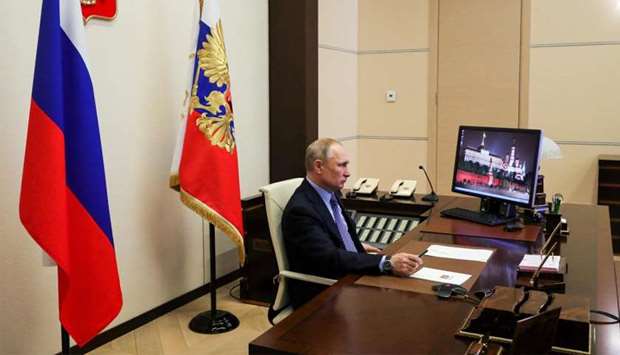Russia's parliament passed legislation on Tuesday to enable the prime minister to declare a state of emergency due to the coronavirus pandemic.
The prime minister would be granted the ‘right to implement a regime of high alert or a state of emergency for the entire territory of Russia or for a part of it,’ the lower house of parliament said in a statement.
The bill was approved by both the lower and upper house the same day. It was then expected to be signed by President Vladimir Putin to become law.
Prime Minister Mikhail Mishustin suggested the previous day that lockdown measures that have already gone into effect in Moscow should be replicated across the country to prevent the further spread of the virus.
Moscow, the country's capital and largest city, has ordered its residents to stay at home and only to go outside when absolutely necessary, to buy food or medicine, for example.
Residents are also allowed to go to work with a special permit issued by the government.
By mid-Tuesday, half of Russia's regions had followed Mishustin's direction and imposed lockdown measures akin to Moscow's, state media reported.
Russia has also restricted all forms of traffic into the country with rare exceptions, such as for diplomats and imported goods.
Russia has reported more than 2,300 cases of the new coronavirus, predominantly in Moscow.
Mayor Sergei Sobyanin has warned that the actual number of cases is probably significantly higher.
State media reported on Tuesday that Russia's top doctor for coronavirus cases, Denis Protsenko, tested positive for the virus.
Protsenko heads the coronavirus treatment facility at Moscow's Kommunarka hospital.
Putin met with Protsenko at the facility last week to discuss how it has coped with the influx of patients.
Putin's spokesman, Dmitry Peskov, said on Tuesday that the president is regularly tested for the virus and is healthy.
Meanwhile the upper house of parliament approved legislation to send quarantine violators to prison for up to seven years.
The legislation also targets the dissemination of information.
If such information is deemed incorrect and causes an individual's health to be harmed, the person who had spread that information could be sent to prison for up to five years.

